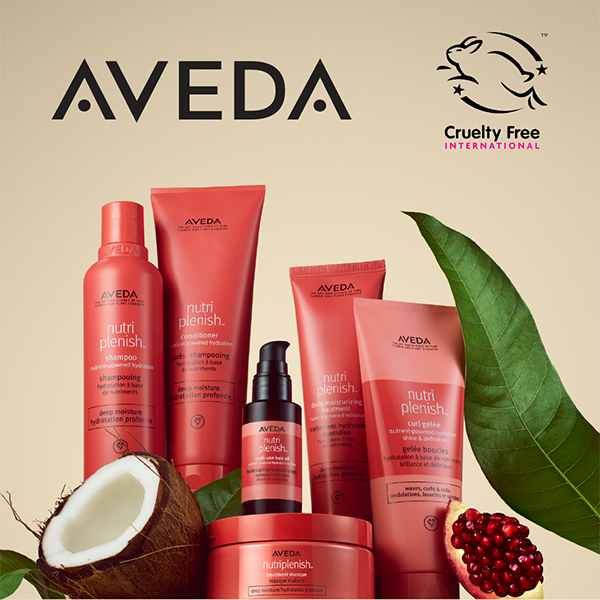Maximizing Your Hair Care
- Oz @ Sami Halaseh Salon

- Jul 24
- 4 min read
Understanding effective hair care is essential for everyone, whether you have straight, curly, or wavy hair. With countless products and techniques available, it’s easy to feel overwhelmed or unsure about what’s right for you. This post dives into hair care FAQs, exploring tips, techniques, and common misconceptions to help you maximize your hair care routine.
Why is Hair Care Routine Important?
Having a consistent hair care routine is crucial for maintaining healthy hair. Just like our skin, our hair needs proper care to remain strong and vibrant. A personalized routine can help minimize damage, enhance shine, and promote overall hair health. According to a study published in the Journal of Cosmetic Dermatology, individuals who followed a tailored hair care regimen reported 30% less breakage and improved stress management related to hair care.
Practical Tip: Start by identifying your hair type and any specific concerns—like dryness, frizz, or oiliness. This knowledge will help you choose suitable products.

\
How often should I wash my hair?
The frequency of washing hair depends largely on hair type and lifestyle. For example, those with oily hair may need to wash every day, while those with dry or curly hair may find that washing once a week is sufficient. The American Academy of Dermatology suggests that individuals with color-treated hair should limit washing to preserve color and moisture.
Suggestion: Experiment with different washing frequencies to find what works best for you. If you find yourself needing to wash daily but your hair feels dry or damaged, consider using a gentle, sulfate-free shampoo.
What ingredients should I look for in hair products?
Choosing the right ingredients is vital for effective hair care. Look for nourishing ingredients like:
Aloe Vera: Provides moisture while promoting shine.
Argan Oil: Rich in fatty acids, it helps to hydrate and soften hair.
Keratin: This protein strengthens hair and helps to reduce frizz.
Biotin: Supports hair growth and thickness.
Avoid harmful additives such as sulfates and parabens, which can strip natural oils and cause damage. The Environmental Working Group (EWG) recommends checking labels and choosing products that prioritize health and safety.
Advice: When trying a new product, look for sample sizes. This way, you can see how your hair responds before committing to a full-size bottle.

How can I promote hair growth?
Promoting hair growth involves nourishing your hair from both the inside and outside. A balanced diet rich in vitamins and minerals, such as iron, zinc, and vitamins A, C, D, and E, can positively impact hair health. Incorporating foods like leafy greens, fish, nuts, and seeds into your diet can aid in this.
In addition, consider using essential oils like rosemary or peppermint oil, which have been shown to stimulate hair growth. According to a study published in the Journal of Medical & Allied Sciences, rosemary oil was found to be effective in promoting hair growth comparable to minoxidil, a common hair growth treatment.
Action Step: Incorporate a weekly scalp massage into your routine. This not only boosts circulation but also helps distribute natural oils, promoting healthier hair.
How do heat tools affect hair health?
Heat styling tools can cause damage if not used properly. High temperatures can lead to dryness, breakage, and split ends. A survey by the American Academy of Dermatology revealed that nearly 80% of women use heat styling tools, but many do not use adequate heat protection.
To minimize damage, consider the following:
Use a heat protectant spray before styling.
Opt for low heat settings, and avoid using heat tools on wet hair.
Limit heat styling to a few times a week.
Recommendation: Consider switching to air-drying your hair when possible. If you must use heat, try to use tools that allow you to adjust the temperature to protect your strands.
Is it necessary to use conditioner every time I wash my hair?
Conditioner is an important step in hair care, but whether you should use it every time depends on your hair type. For example, those with oily hair might find that conditioning every wash can weigh their hair down. On the other hand, individuals with dry or textured hair often benefit from consistent conditioning, as it helps maintain hydration and manageability.
A good rule of thumb is to assess your hair’s needs as you wash. If your hair feels dry or tangles easily after shampooing, make sure you're following up with a conditioner.
Tip: Consider using a leave-in conditioner once a week. This can provide additional moisture and protection without weighing down your hair.
Are there any myths about hair care I should be aware of?
Yes, there are many myths surrounding hair care that can lead to ineffective practices. Here are a few common misconceptions:
Myth: Hair grows faster if you cut it regularly.
Truth: Cutting hair does not affect the rate of growth. Hair growth occurs at the scalp level.
Myth: You should wash your hair daily for it to look its best.
Truth: Overwashing can strip hair of natural oils, leading it to become dry and damaged.
Myth: Dandruff is caused by dry scalp.
Truth: Dandruff is often caused by a yeast-like fungus known as Malassezia, not necessarily dry scalp.
Being aware of these myths can help you make informed choices about your hair care routine and avoid unnecessary harm to your hair.
Final Thoughts
Taking small steps toward a customized hair care regime can lead to significant improvements over time. Whether it’s switching products, changing your washing routine, or learning the truth about common myths, every effort counts toward beautiful and healthy hair.



Comments